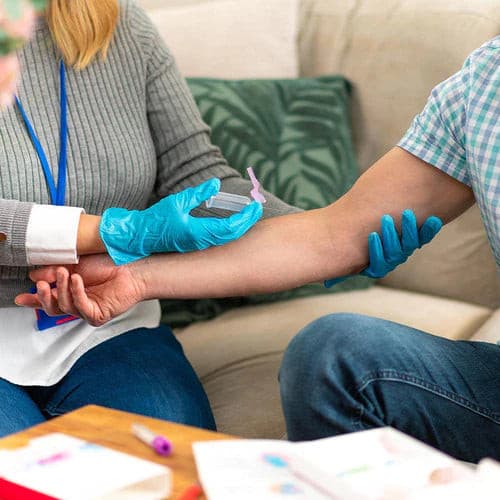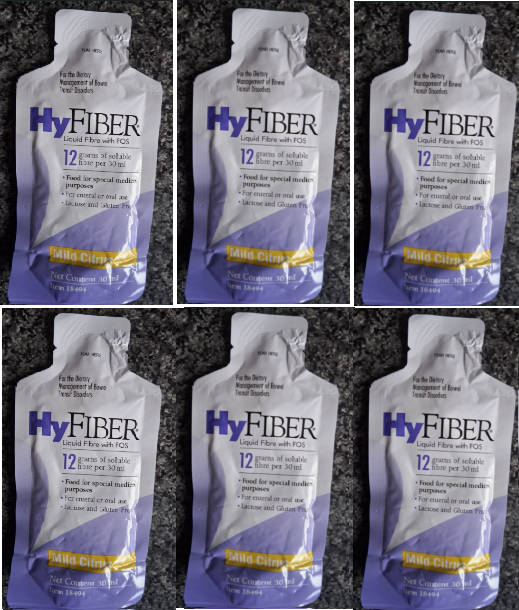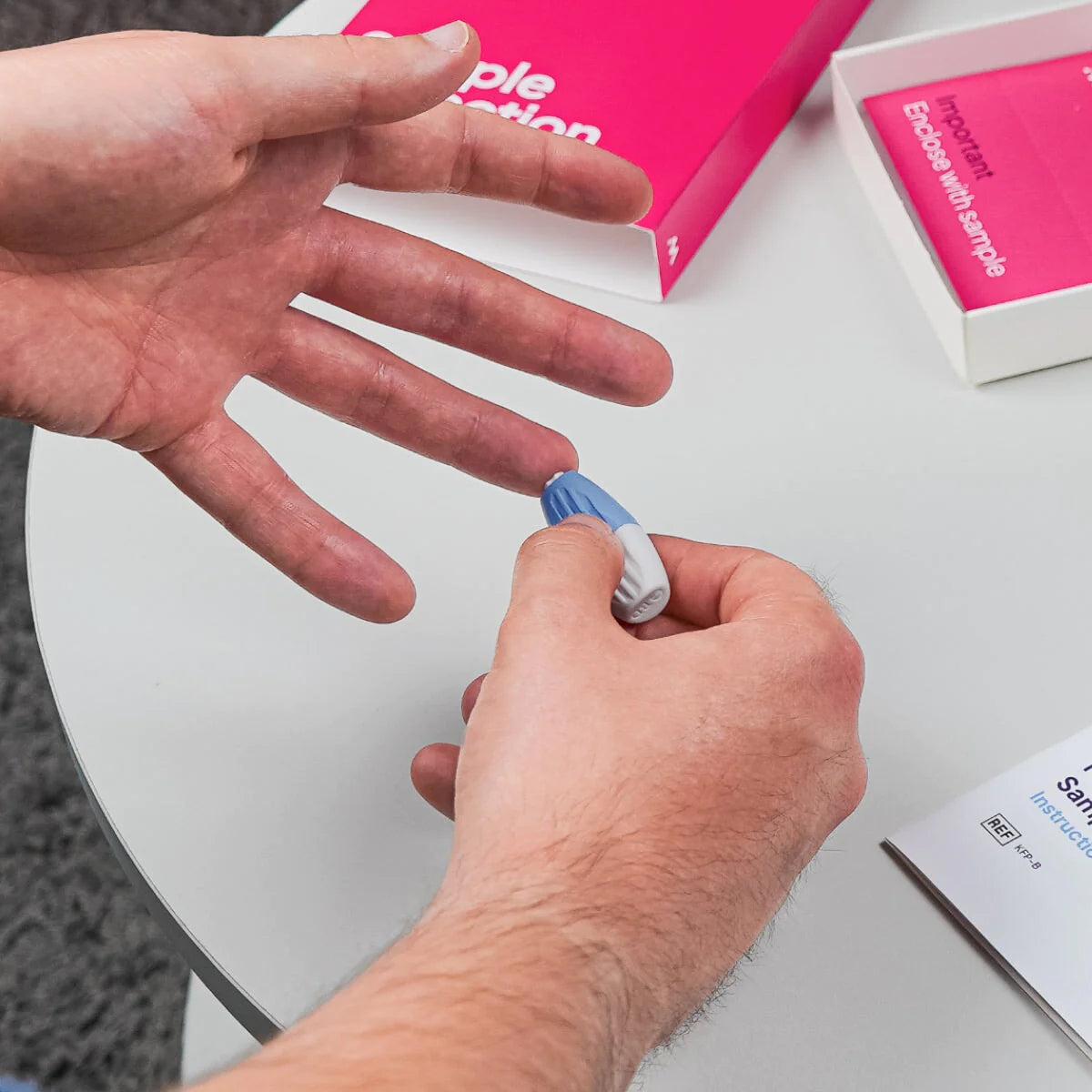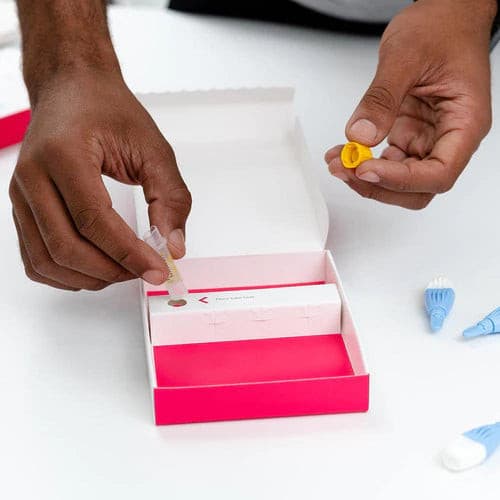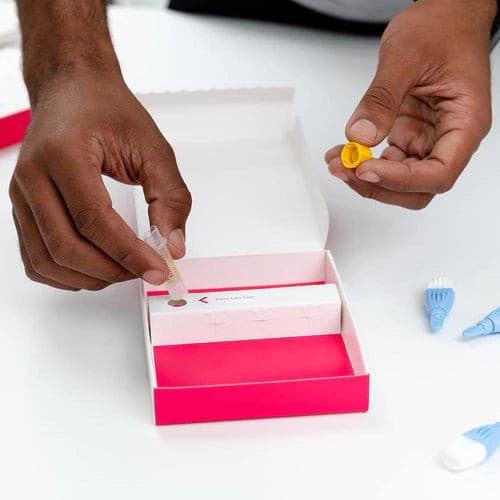
About Description
- blood test antibodies and MMA to help diagnose pernicious anaemia
- affects your body's ability to absorb vitamin B12
Why People Choose Us

Quick & Easy
No appointment or long waiting times

Discreet Packaging
Plain packaging with no medical stamps or marks

Confidential Service
Your information stays with us and private payment

UK Medication
Dispensed by registered UK pharmacists
Autoimmunity (1 Biomarker)
When your immune system misidentifies your own cells or tissues as "foreign," it begins to attack them, which is known as autoimmune disease. The parts of your body that are being attacked distinguish a number of autoimmune disorders.
Thyroid disease (Hashimoto's Thyroiditis and Graves' Disease), systemic lupus erythematosus (lupus), and rheumatoid arthritis are examples of common autoimmune diseases. Nobody is quite sure what causes an autoimmune illness, but it is commonly known that more women than men are affected and that your risk of getting one is increased if a family member has one or if you have already had one identified.
Numerous signs of autoimmune disease might either continually be present or flare up occasionally with periods of remission.
Depending on which bodily systems are impacted by the condition, the symptoms change. While other illnesses, like lupus, affect a variety of body tissues, in certain situations the tissue affected is highly specific, such as the thyroid in the case of Hashimoto's thyroiditis.
Intrinsic factor Antibodies
The stomach produces intrinsic factor, which aids in the absorption of vitamin B12 from food.
Vitamin B12 absorption can be decreased by interference with its synthesis or action. Antibodies against intrinsic factors are created by the immune system.
In order to get vitamin B12 from the food we eat, intrinsic factor is required.
Vitamin B12 is not absorbed and the body cannot generate enough red blood cells, which causes the autoimmune disease pernicious anaemia, if there is insufficient intrinsic factor available.
Iron Status (1 Biomarkers)
Ferritin
A complex globular protein called ferritin is used to store iron in an inactive form. The ferritin releases its iron for usage as your iron reserves get depleted.
You will run out of iron if your ferritin levels drop, and your ability to make red blood cells in your bone marrow will also suffer.
Thus, ferritin provides a reliable indication of your iron reserves. Ferritin can rise at times of infection, inflammation, or trauma because it is an acute-phase protein as well.
Clotting Status (2 Biomarkers)
Your bone marrow produces your clotting cells (platelets), which are crucial for regulating bleeding. Thrombocytopenia is a condition that occurs when too few or too quickly damaged platelets are created.
Immune problems, certain medications, liver illness, or continuous bleeding are all potential causes of this.
Thrombocytosis, often known as a high platelet count, can result from a number of illnesses, including problems with the bone marrow, infection, and inflammation.
MPV
Mean Platelet Volume, or MPV, is a measurement of your platelets' typical size. Blood cells that have been broken up into pieces are called platelets, and they help clots form. The creation of platelets in your bone marrow is indicated by MPV.
Platelet Count
Platelets, also known as clotting cells, are the tiniest blood cells and are crucial for blood clotting.
When there is bleeding, the platelets enlarge, group together, and form a sticky plug (a clot) that aids in stopping the bleeding.
Red Blood Cells (7 Biomarkers)
The most prevalent form of blood cell, the red blood cell, is responsible for transporting oxygen to your tissues through your circulatory system.
Your bone marrow continuously produces red blood cells to replace those that are lost as a result of bleeding or cell ageing. Your red cell count should remain consistent, but some health issues can result in abnormally few or excessively numerous red cells, abnormally fast cell death, or abnormally shaped red cells.
The amount of oxygen given to your tissues is affected if you are not creating enough red blood cells, which causes anaemia and its accompanying symptoms of weariness and pale skin. Headaches, blurred vision, and an enlarged spleen can all be symptoms of excessive red blood cell production.
Haematocrit
The haematocrit (HCT) scale measures how much space (volume) red blood cells occupy inside the blood.
Haemoglobin
Red blood cells contain a protein called haemoglobin, which is responsible for the red colour of the blood and for carrying oxygen throughout the body.
This test gauges the blood's capacity to deliver oxygen throughout the body by counting the amount of haemoglobin present. Since they need to make sure that their muscles are getting enough oxygen, athletes and sports persons typically have higher oxygen demands than the normal person.
In endurance and strength athletes, it is common to find haemoglobin levels at the higher end of the normal range.
MCH
The average quantity of haemoglobin found in one of your red blood cells is measured by MCH (mean corpuscular haemoglobin).
MCHC
The average amount of haemoglobin in your red blood cells is called the MCHC (mean corpuscular haemoglobin concentration).
Red blood cells use the chemical haemoglobin to carry oxygen throughout the body.
MCV
Your red blood cells' average size can be determined by your MCV (mean corpuscular volume).
This is crucial to evaluate because it can show how much oxygen your cells are probably transferring throughout the body.
RDW
The red blood cell distribution width (RDW) reveals whether the sizes and shapes of your red blood cells are uniform across the board or vary.
Your red blood cells may grow in atypical sizes due to several blood disorders because, in general, cells are pretty uniform in size and shape.
The size difference between the largest and the smallest red blood cell is determined by this test.
Red Cell Count
Analyzing the number of red blood cells in the blood is known as red blood cell (RBC) counting.
Oxygen is transported by red blood cells from the lungs to the rest of the body, where it can be used as a source of energy for activities like breathing and moving about. Additionally, they transport the carbon dioxide that cells make back to the lungs for exhalation.
White Blood Cells (6 Biomarkers)
The foundation of your body's immunological or defence system is made up of white blood cells. They combat illnesses and shield your body from external substances like dangerous bacteria and germs.
White blood cells are created from bone marrow stem cells and have a short lifespan of a few days. The body is protected by five main types of white blood cells, each of which has a unique function.
Your immune system and recent infections can both be diagnosed using the numbers of each of these categories of white blood cells.
White Cell Count
The White Blood Cell (WBC) Count calculates how many white blood cells are present in the blood.
White blood cells are essential to the immune system of your body. They combat illnesses and defend your body from invaders like dangerous bacteria and germs.
To shield you from repeated infections with the same germ, they also develop a large number of antibodies and memory cells.
Basophils
White blood cells called basophils guard your body against bacteria and parasites like ticks. They additionally contribute to allergic responses.
Eosinophils
White blood cells called eosinophils are in charge of eliminating parasite infections and controlling inflammation to identify an infected spot.
They also have an impact on asthma and allergies.
Lymphocytes
White blood cells called lymphocytes defend the body against viral and bacterial illnesses.
They are a subgroup of white blood cells that play a role in the body's more focused response to infections, which is able to recognise and classify various foreign organisms that enter the body.
They create antibodies and memory cells to aid in preventing further infections from the same germ in addition to combating infection. T cells, B cells, and natural killer cells are examples of lymphocytes.
Monocytes
White blood cells called monocytes engulf and eliminate pathogens as well as dead or damaged cells from our blood.
These cells' activity contribute to the heat and swell of inflammation.
Neutrophils
White blood cells known as neutrophils are in charge of assisting your body in the fight against illness.
If your neutrophil count is low, you may be more susceptible to disease and infection.
Easy Steps for your Medicine

Complete a consultation.
With complete privacy and confidentiality your form is checked by a pharmacist independent prescriber.
Choose your treatment.
From the list approved by the prescriber, choose your preferred treatment and then wait for it to be dispensed by UK Meds online pharmacy.
Receive your delivery
With next day delivery options available, you can have your treatment sent out to you discreetly within hours.Our Happy Customers
Rated Us for our Service Excellence
 Dispensed by Regulated UK Pharmacists
Dispensed by Regulated UK Pharmacists

 How it works
How it works Help
Help Account
Account
 Basket
Basket








